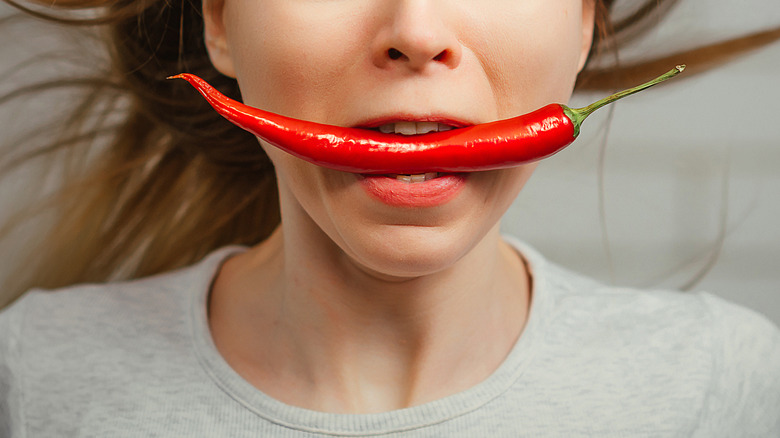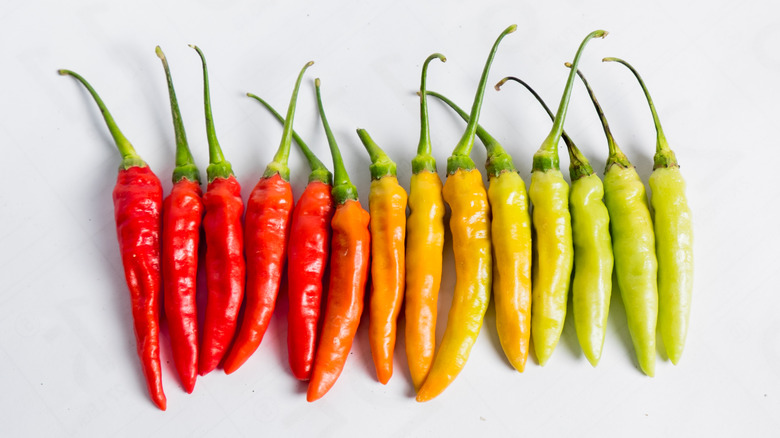Why Eating Spicy Food Makes Your Mouth Feel Like It's On Fire
Picture this: You have a giant plate of assorted chicken wings in front of you, all smothered in different flavorful sauces. The first few bites offer a lovely, mild, savory flavor. You've got this! Then, you reach for a wing generously spun in an aromatic, slightly different colored sauce. You take a big ol' bite and feel instant regret. Your mouth feels like it's on fire. It just so happens that some spicy foods are less pleasurable and more painful than others. Not all hot peppers — nor all tongues — are created equally, and this has to do with a genre of chemistry that has been studied for years — the Scoville scale. According to Chili Pepper Madness, the Scoville scale measures the pungency and heat levels of chili peppers as recorded by Scoville Heat Units, or SHUs.
For one, why would anyone in their right mind voluntarily eat something that is so unbearably hot? According to Insider, when we eat spicy foods, our brains release endorphins and dopamine. When combined, these two chemicals promote a natural sense of euphoria in the body. This is likely why so many people crave spicy food and love to douse their every meal in hot sauce, crushed red pepper flakes, sliced jalapeños, and other piquant toppings. So, how does eating super spicy food generate a burning sensation?
Hot peppers contain capsaicin, which produces a physical sense of heat
Depending on your personal spice tolerance levels, some spicy foods offer more suffering than satisfaction. When this happens, capsaicin — the chemical that makes peppers spicy — joins with pain receptors in the mouth, therefore perceiving extreme heat, according to The Spruce Eats. Dr. Chris Gulgas, a chemistry professor at the University of Cincinnati who researches spicy foods, told Greatist, "These nerve cells naturally fire a signal when the local temperature gets above 108 degrees. The fact that capsaicin tricks the neurons into the same reaction is an accident or coincidence."
Over the years, hot peppers and the countless recipes in which they star have become a cultural phenomenon in their own right. In fact, the 2021 Nobel Prize winners in Physiology or Medicine, David Julius and Ardem Patapoutian, used chili peppers in their groundbreaking study to discover how humans distinguish heat, cold, and different levels of pressure (per Nature).
If you ever eat something that is just way too spicy for your liking, there are a few tricks to help cool you down. EatingWell suggests drinking a glass of whole milk, chewing on bread with honey, or sucking on an ice cube. You can also make your hot sauce less spicy by adding more of its base ingredient, according to Portland-based brand Secret Aardvark. One day, you're bound to meet your match in spicy foods, but rest assured that the pain is only temporary!

